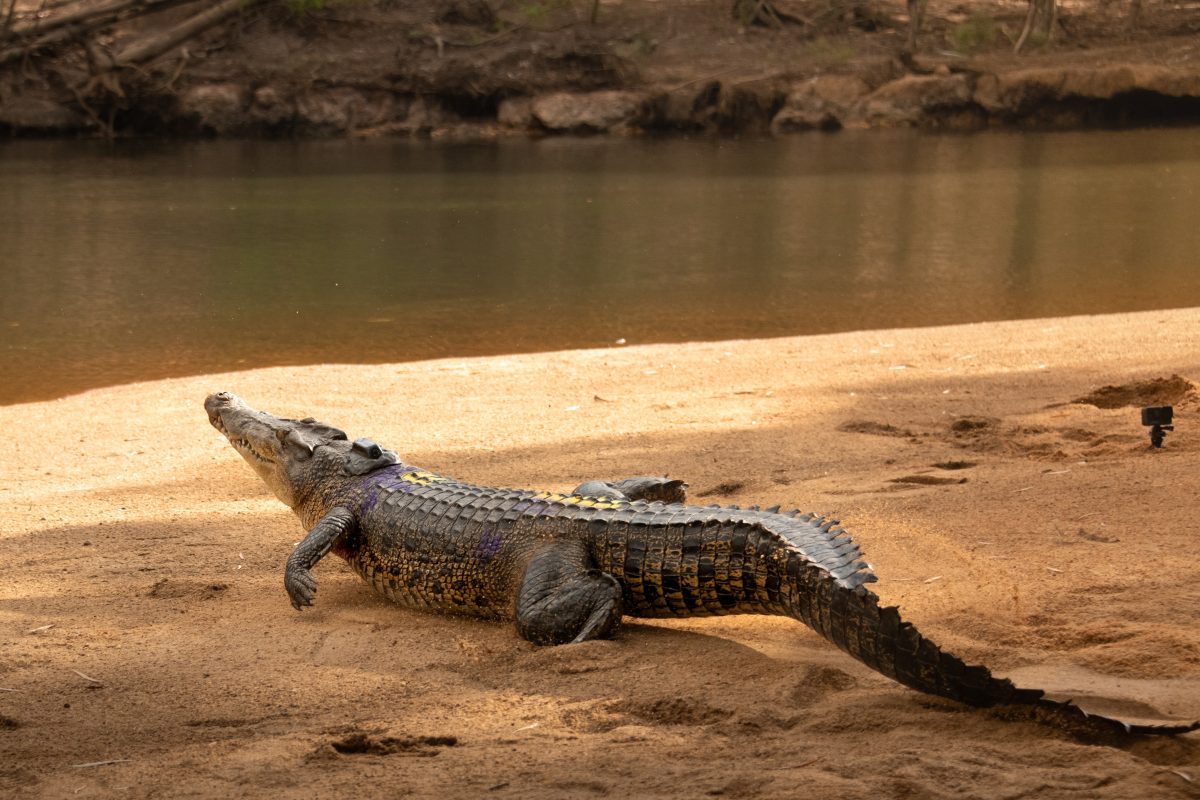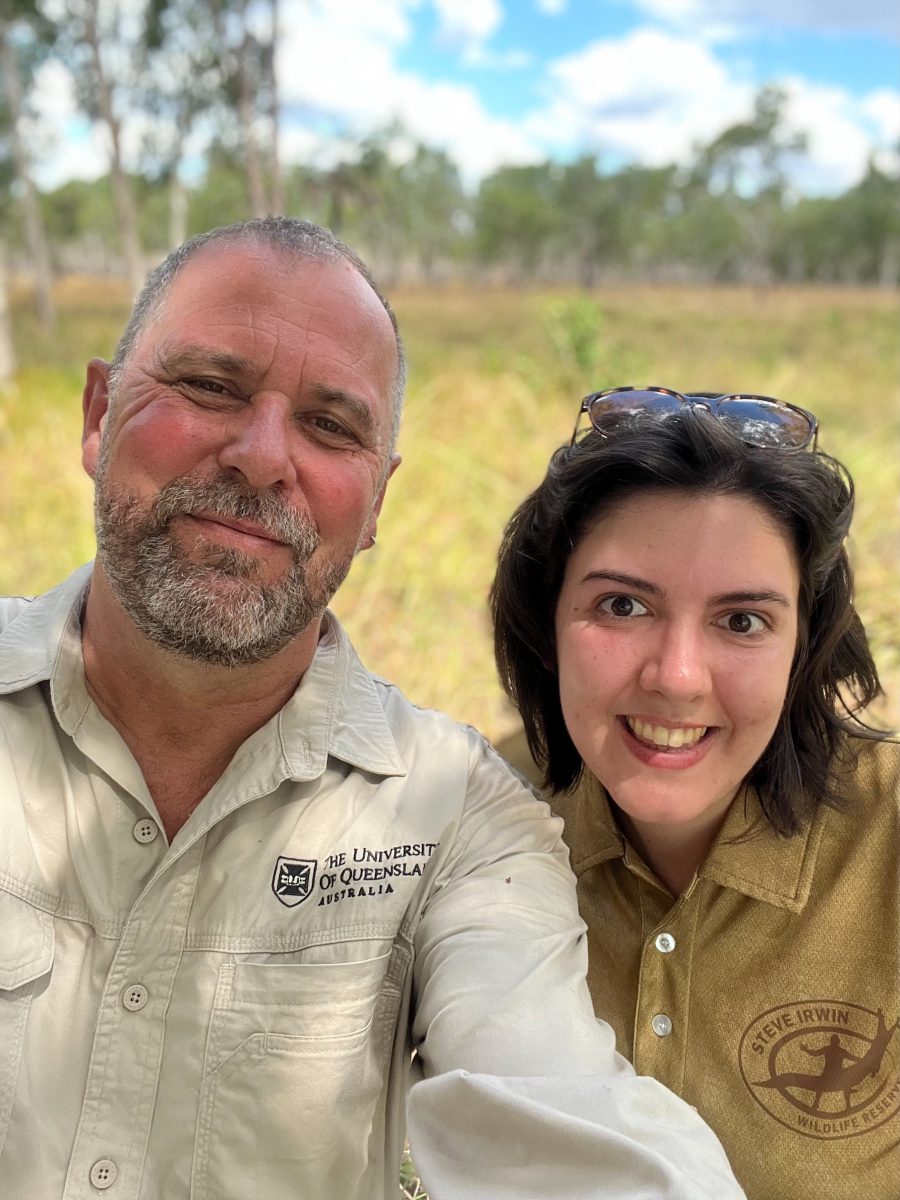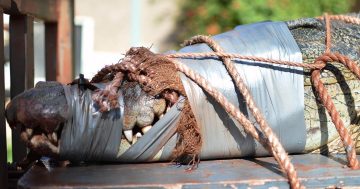
New research from the University of Queensland shows Cape York crocodiles are spending less time hunting and mating, and more time attempting to regulate their body temperature as the environment warms up around them. Photo: Kate Berry/Australia Zoo.
Warming body temperatures are changing the behaviour of Cape York’s apex predator but researchers say it is too soon to say whether it will lead to a shift in the preferred diet of saltwater crocodiles.
Research led by the University of Queensland’s School of the Environment analysed 15 years of sensor and tracking information from 203 wild crocodiles on the Wenlock and Ducie rivers on Cape York, with data revealing the animals were spending more time at or close to their critical thermal limit of 32-33 degrees, the point at which behavioural performance decreases.
PhD candidate Kaitlin Barham said the data showed a warming environment was increasing the body temperature of the crocodiles, forcing them to focus on staying cool, rather than other key behaviours.
“As ectotherms, crocodiles can’t regulate their own temperature like birds and mammals, so as their environment is becoming warmer, the animals in our study are also getting hotter and needing to spend more time on cooling behaviours,” Ms Barham said.
“But if their time and energy is dominated by the need to stay cool, activity necessary for hunting, keeping safe from predators or reproducing is reduced.”
Since 2008, the temperature peaks experienced by the crocodiles in the study increased by 0.5 degrees, while their median body temperature increased by 0.11 degrees.
Forty-five of the crocodiles in the study experienced body temperatures above 34 degrees at least once, according to the data collected during the research.
Research co-author Professor Craig Franklin said high body temperatures were recorded even while the crocodiles were actively trying to stay cool.
“When they’re above 32-33 degrees, a crocodile’s diving and swimming performance is impacted,” he said.
“Hotter crocodiles don’t dive for as long, which is concerning, because as ambush hunters, they need to wait underwater holding their breath for a wallaby or feral pig to come past.”
Ms Barham said the next steps in the research would investigate whether a consistent body temperature increase would cause crocodiles to seek out cooler environments, such as the southern part of Queensland.
“That’s the really big question at this point,” she explained.
“Them travelling these long distance movements and potentially going south wasn’t something we were able to look at, because it was only one population; what we’re thinking is there’s currently no evidence crocs are moving south, but it would be good to look at populations further south to see how they are coping with the increased temperatures and possibly long distance travelling.”
Ms Barham said another behaviour the research team was eager to investigate was whether crocodiles were changing their diets away from animals used to ambush predation, like feral pigs, and instead focusing on less-aware targets.
“What we’ve really seen is that they’re prioritising cooling behaviours over warming behaviours, but we’re not sure to what extent, if any, it’s going to push out hunting behaviour,” she said.
“Looking at what effects the higher temperatures have on the diet of crocs, if anything, is actually the next step for this research.”
The long-term research project, based at the Steve Irwin Wildlife reserve on Cape York, has been carried out in a collaboration between UQ and crocodile experts from Australia Zoo.

Professor Craig Franklin and PhD candidate Kaitlin Barham have led research into how saltwater crocodiles are adapting their behaviour as they approach their critical body temperature. Photo: Supplied.



